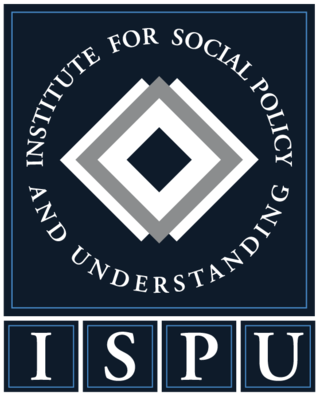Sharia,Sharī'ah, Shari'a, Shariah or Syariah is a body of religious law that forms a part of the Islamic tradition based on scriptures of Islam, particularly the Qur'an and hadith. In Arabic, the term sharīʿah refers to Allah's immutable divine law and this is contrasted with fiqh, which refers to its interpretations by Islamic scholars. Fiqh, practical application side of sharia in a sense, was elaborated over the centuries by legal opinions issued by qualified jurists and sharia has never been the sole valid legal system in Islam historically; it has always been used alongside customary law from the beginning, and applied in courts by ruler-appointed judges, integrated with various economic, criminal and administrative laws issued by Muslim rulers.
Islamophobia is commonly defined as an irrational fear of, hostility towards, or prejudice against Islam or Muslims. Such sentiments are sometimes expressed through stereotypes that portray Muslims as a geopolitical threat or a source of terrorism. Academics, authors and policymakers continue to debate the exact meaning of the term.
Islamic fundamentalism has been defined as a revivalist and reform movement of Muslims who aim to return to the founding scriptures of Islam. The term has been used interchangeably with similar terms such as Islamism, Islamic revivalism, Qutbism, Islamic activism, but also criticized as pejorative, a term used by outsiders who instead ought to be using more positive terms such as Islamic activism or Islamic revivalism.
Political aspects of Islam are derived from the Quran, ḥadīth literature, and sunnah, the history of Islam, and elements of political movements outside Islam. Traditional political concepts in Islam include leadership by elected or selected successors to Muhammad, known as Caliphs in Sunnī Islam and Imams in Shīʿa Islam; the importance of following the Islamic law (sharīʿa); the duty of rulers to seek consultation (shūrā) from their subjects; and the importance of rebuking unjust rulers.
Amina Lawal Kurami is a Nigerian woman sentenced to death by stoning for adultery and for conceiving a child out of wedlock. Lawal was sentenced by an Islamic Sharia court in Funtua, in the northern state of Katsina, in Nigeria, on 22 March 2002. The person she identified as the father of the child, Yahayya Muhammad Kurami, was acquitted of the accusation of zinā. Although Kurami was excused because he took an oath by the Holy Qur’an, this was not an option for Lawal due to the presence of her child, which is proof in the Mālikī school.

Islam is the third-largest religion in the United States (1.34%), behind Christianity (67%) and Judaism (2.07%). The 2020 United States census estimated that 1.34% of the population of the United States are Muslim. In 2017, twenty states, mostly in the South and Midwest, reported Islam to be the largest non-Christian religion.
The European Council for Fatwa and Research (ECFR) is a Dublin-based private foundation, founded in London on 29–30 March 1997 on the initiative of the Federation of Islamic Organizations in Europe. The council is a largely self-selected body, composed of Islamic clerics and scholars, presided over by Yusuf al-Qaradawi.

John Louis Esposito is an American academic, professor of Middle Eastern and religious studies, and scholar of Islamic studies, who serves as Professor of Religion, International Affairs, and Islamic Studies at Georgetown University in Washington, D.C. He is also the founding director of the Prince Alwaleed Center for Muslim–Christian Understanding at Georgetown.
There exist a number of perspectives on the relationship of Islam and democracy among Islamic political theorists, the general Muslim public, and Western authors.
There is a wide range of Muslim attitudes towards terrorism.

The experiences of Muslim women vary widely between and within different societies. At the same time, their adherence to Islam is a shared factor that affects their lives to a varying degree and gives them a common identity that may serve to bridge the wide cultural, social, and economic differences between them.
The ideas and practices of the leaders, preachers, and movements of the Islamic revival movement known as Islamism have been criticized by non-Muslims and Muslims.

Stoning, or lapidation, is a method of capital punishment where a group throws stones at a person until the subject dies from blunt trauma. It has been attested as a form of punishment for grave misdeeds since ancient times.
The use of politically and religiously-motivated violence dates back to the early history of Islam. Islam has its origins in the behavior, sayings, and rulings of the Islamic prophet Muhammad, his companions, and the first caliphs in the 7th, 8th, and 9th centuries CE. Mainstream Islamic law stipulates detailed regulations for the use of violence, including corporal and capital punishment, as well as regulations on how, when, and whom to wage war against.
Hatoon Ajwad al-Fassi is a Saudi Arabian historian, author and women's rights activist. She is an associate professor of women's history at King Saud University in Saudi Arabia, where she has been employed since 1989 and at the International Affairs Department at Qatar University. At the university, al-Fassi carries out historical research. Al-Fassi claims from her research into the pre-Islamic Arabian kingdom of Nabataea that women in the kingdom had more independence than women in modern Saudi Arabia. Al-Fassi was active in women's right to vote campaigns for the 2005 and 2011 municipal elections and was active in a similar campaign for the 2015 municipal elections. She was arrested in late June 2018 as part of a crackdown on women's activists and was released in early May 2019.

The legal system of Saudi Arabia is based on Sharia, Islamic law derived from the Quran and the Sunnah of the Islamic prophet Muhammad. The sources of Sharia also include Islamic scholarly consensus developed after Muhammad's death. Its interpretation by judges in Saudi Arabia is influenced by the medieval texts of the literalist Hanbali school of Fiqh. Uniquely in the Muslim world, Sharia has been adopted by Saudi Arabia in an uncodified form. This, and the lack of judicial precedent, has resulted in considerable uncertainty in the scope and content of the country's laws. The government therefore announced its intention to codify Sharia in 2010, and, in 2018, a sourcebook of legal principles and precedents was published by the Saudi government. Sharia has also been supplemented by regulations issued by royal decree covering modern issues such as intellectual property and corporate law. Nevertheless, Sharia remains the primary source of law, especially in areas such as criminal, family, commercial and contract law, and the Qur'an and the Sunnah are declared to be the country's constitution. In the areas of land and energy law the extensive proprietorial rights of the Saudi state constitute a significant feature.
Sharia means Islamic law based on Islamic concepts based from Quran and Hadith. Since the early Islamic states of the eighth and ninth centuries, Sharia always existed alongside other normative systems.
Aminah Beverly McCloud is Professor of Religious Studies and Director of Islamic World Studies program at DePaul University. Her areas of expertise include Islam in America, Muslim women, Islamic studies and the history, geography, politics, religion and philosophy of Islam. She is the author and co-author of several books. Professor McCloud is also the Editor in Chief of the Journal of Islamic Law and Culture, and a member of the board of advisors of the Institute for Social Policy and Understanding (ISPU).
Natana J. DeLong-Bas is an American academic, scholar of Middle Eastern and Islamic studies, and author of a number of academic publications on Islam on the subjects of Saudi Arabia and Wahhabism, Islamic thought and history, Islam and politics, and contemporary jihadism.

The Institute for Social Policy and Understanding (ISPU) is a research organization with a focus on American Muslims. The Institute produces an annual American Muslim Poll and serves as a resource for journalists. Its reports and surveys have included topics such as political leanings, attitudes on censorship, experiences of discrimination, and responses to religiously motivated violence.






